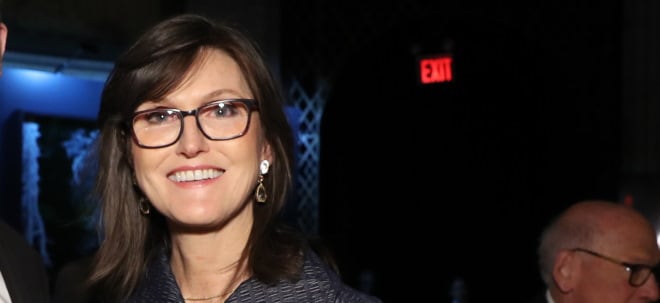nachdem die Deutsche Bank voraussichtlich 700 Klagen u.a. von Kommunen an der Backe hat wegen der schiefgegangenen Swapgeschäfte scheint mir der folgende Artikel nicht uninteressant und man fragt sich ,wieso ausgerechnet die Deutsche Bank sich auf derartig riskante Geschäfte eingelassen hat:
Aug. 21 (Bloomberg) -- The next time a banker tells your city council that you have to do one of these interest rate swaps because they're great and you will save money and, besides, everyone is doing them, tell them what my Aunt Mary from Arkansas says:
That. Is. Not. True.
Standard & Poor's on July 30 published a report on swap and derivative transactions in U.S. public finance and it contains one number to keep in mind: 750.That's the number of ``Debt Derivative Profiles'' the rating company has completed since it began tracking the use of swaps in Muniland in September 2004.
The DDP, as Standard & Poor's calls it, measures how risky a municipality's use of swaps is, on a scale of 1 to 4, 1 being the lowest risk.The DDP ``principally indicates an issuer's potential financial loss from debt derivatives due to collateralization of a transaction, or worse, early termination resulting from credit deterioration or economic reasons,'' the rating company says.Other issues the agency takes into account besides termination risk are swap management policies, counterparty credit risk and ``economic viability of the structure over stressful economic cycles.''
The key number here is 750. There are 55,000 entities that can sell municipal bonds in the U.S., Securities and Exchange Commission Chairman Christopher Cox said in a speech on July 18. The number that have used swaps and derivatives: 750.
That's 1.36 percent of all bond issuers.
Got that? After more than a decade of almost incessant, 'round-the-clock propaganda about how terrific swaps and derivatives are, about how you're really behind-the-curve if you don't include swaps with your bond transactions, it turns out that less than 2 percent of all issuers have actually used them.Let's say S&P hasn't captured the entire universe of municipalities that have used swaps and derivatives. The company, after all, only includes issuers that it also rates, and it doesn't rate every municipal bond issuer. Fine, let's say 1,000 municipal issuers have used swaps and derivatives at some point in the past decade. That's 1.8 percent.
The proposition behind the mania for these things is that they are right for everyone, including the tiniest, most- unsophisticated issuers, such as school districts. Some states, such as Pennsylvania, have even gone so far as to pass specific laws allowing their municipalities to engage in these transactions, as long as they employ an adviser.
SEC Investigation
Make no mistake. Securities firms want municipalities to use swaps and derivatives because they can make a lot of money on them, sometimes double or triple whatever they might make on simply underwriting a bond issue.The trouble is, municipalities can get into trouble if they pay too much for a swap. The IRS has already penalized a bunch of issuers for this very thing, saying their bonds violate tax laws. The municipalities, it turns out, were completely clueless about how much they paid for their swaps and derivatives. They relied on the help.
It seems that the help was in on the game; the SEC last November embarked upon a big investigation into ``anticompetitive practices'' in the municipal market, and at the heart of it is, you guessed it, swaps and derivatives. If I were a municipal issuer, I don't think I'd be too eager to jump into this part of the market right now.
Few Use Them
The funny thing about the swaps and derivatives part of the market was that you could never get a specific answer about how many were being used. Nobody knew. I have a feeling that this subterfuge was very deliberate on the part of the people pushing these things. They didn't want anyone to know just how few issuers really used them.
Of the 750 issuers S&P says use swaps and derivatives, only 255 are state and local governments. ``This statistic indicates that an overwhelming number of governmental issuers are not involved in interest rate hedging activities,'' says the rating company. ``This philosophy is consistent with the highly conservative and risk averse nature of state and local governments.''
Who uses swaps and derivatives? Health and hospital bond issuers and universities, mainly. S&P says it expects their use to grow as issuers become more comfortable with them. My advice is: Don't be bulldozed by aggressive bankers. I wouldn't get too comfortable with these financial instruments until you can figure out how much you are paying for these things all on your own, and until the SEC concludes its investigation. |


 Thread abonnieren
Thread abonnieren




